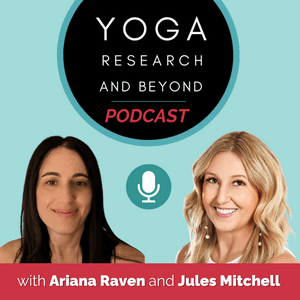In this episode, Ariana and Jules discuss a systematic review and meta-analysis examining the effects of mind-body interventions, such as yoga, on neuroendocrine functions. They explore the interconnectedness of the immune, nervous, and endocrine systems, the methodology behind systematic reviews, and the implications of their findings on health and wellness. The conversation highlights the importance of understanding the mechanisms behind these interventions, the challenges faced in cancer research, and the need for future studies to validate the long-term benefits of mind-body practices.
Takeaways:
Mind-body interventions can improve neuroendocrine functions.
Systematic reviews compile data from multiple studies for better accuracy.
The immune, nervous, and endocrine systems are interconnected.
Cortisol is a key biomarker for measuring stress responses.
Cancer shows resistance to mind-body interventions compared to other conditions.
Future research should focus on long-term effects of interventions.
Understanding the methodology of systematic reviews is crucial for interpreting results.
Small to moderate effects were observed across studies.
Research findings should be communicated carefully to avoid misconceptions.
Tables and charts in systematic reviews provide valuable insights into individual studies.
Chapters:
00:00 Introduction to Mind-Body Interventions
02:21 Understanding Systematic Reviews and Meta-Analyses
05:24 The Interconnection of Immune, Nervous, and Endocrine Systems
07:58 Research Methodology and Findings
11:08 Effects on Biomarkers and Health Outcomes
13:52 Limitations and Future Research Directions
16:37 Conclusion and Practical Implications


